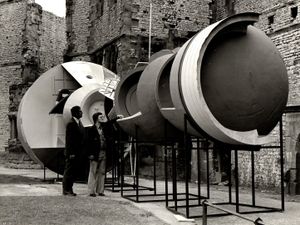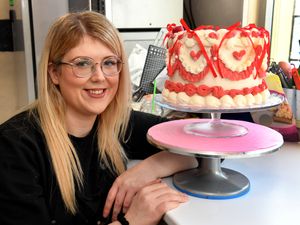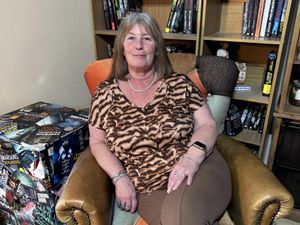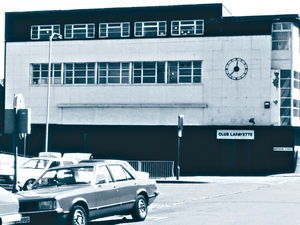Love of library led to medal: What it's like to be a librarian
Libraries are no longer just for reading and borrowing books.
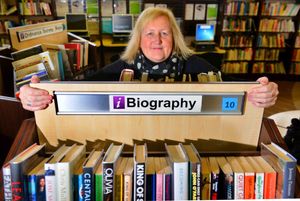
They’re the heart of their communities, hosting a wide range of activities from children’s play sessions and film clubs to live music and theatre.
As well as aiming to bring people from all walks of life together, they also strive to offer a safe and welcoming place to those who need it the most.
“It’s about making friends and making the community stronger. We’re here for the community and we make sure we provide what the community wants and needs,” said Julie McKirdy, who has been working in libraries for more than 40 years.
She started working at Thimblemill Library in September 1978, straight from school at the age of 16, and loved it so much that she never left.
Julie had always planned on having a career in the police and volunteered as a police special, to help get a foot in the door.
But it wasn’t long before the library had won her over and she realised where her true passions lay.
“I always thought I would go into the police and I stayed in the specials until I was 25, but I’m a good guy, I don’t like telling people off and I’m not very good at being strict, so I didn’t think it was for me.
“And I had started to really love the libraries, the people and the community. There is so much life and so much character in the library.
“Thimblemill was my library when I was a child and my grandad used to bring me here. It’s always been in my heart,” said the 56-year-old, who works as a senior supervisor for Thimblemill and Smethwick libraries.
Thimblemill Library is always a hive of activity, for example, on Friday mornings, there will be excited youngsters getting stuck into a messy play session in one room, while in another, women will be meeting for their weekly knit and natter club, and making clothes for premature babies.
At the same time visitors are making use of the free computers, others are browsing the shelves, choosing a novel, and parents are reading picture books to their little ones.
“The community love the library and the library is well-used. We’ve also got an active friends group which supports the library and runs activities,” said Julie.
Over the past 10 years she has built up a regular programme of live music and theatre, which has proven a huge hit with the community.
Performers from across the world have descended on the 83-year-old library, which has also joined forces with Black Country Touring to host productions.
Julie says the varied programme helps to make theatre and music more accessible to people, and as well as more affordable for those on a tight budget.
“I’ve always loved the arts and it’s great to bring quality music and theatre to the library. It can be difficult for people to get into Birmingham or Wolverhampton to go to the theatre.
“They’ve got to pay for the tickets and then for parking or they’ve got to get a taxi. But they can come to their local library and watch quality theatre for £4 or £5. Where else could they do that?
“We get a lot of families and adults. We get women coming by themselves because they feel safe coming to the library. It encourages people of all ages to come out, and helps to tackle social isolation,” said Julie.
In 2017, the library was named the UK’s first ‘library of sanctuary’ after being recognised by the Birmingham City of Sanctuary movement, for the work it does in welcoming refugees and migrants into the local community.
“I felt really honoured and proud that we were the first in the UK to be a library of sanctuary. It’s all about making people feel welcome,” said Julie.
And the library supervisor has also been recognised for making a difference to people who use the library.
In 2015, Julie was honoured with a British Empire Medal from Her Majesty The Queen, and a party was held at Thimblemill in celebration.
“I was overwhelmed when I found out I was going to receive it, I couldn’t believe it. It came at a distressing time in my life as I was losing my mum to cancer, so it was bitter sweet.
“But the ceremony was lovely and it made me feel so proud of the library. I just love people. I’m not very good at sitting behind a desk. I like talking to people and finding out what they want from the library.
“They said I could have the medal presented at a fancy lunch or a stately home, but there was only one place I wanted it to be at and that was the library. I’ve got some many fond memories here and many more to make,” explained Julie.
Over the years, she has seen many changes, not just in how libraries are used by the public, but also the technology used for issuing books.
“When I started we had the Browne Issue System. Adults had six cards and children had three cards. When they borrowed a book, the card from the book and one of their borrowing cards were filed together and the date was stamped in the book.
“The cards were returned when the book was brought back. People would be queuing up to take books out. Then in the 90s, we moved to a computerised system and we used a special pen to scan the bar codes. Now it’s self-service and people can serve themselves but still get help at the desk if they need it. Libraries are still seeing lots of books go out and people still love reading,” explained Julie.
Libraries have had to adapt to changing tastes and technology but she still believes they have a huge role to play in communities.
“Libraries are precious. They are so vibrant and full of life,” added Julie. All of the libraries in Sandwell are well supported and loved by their communities,” says Julie.


